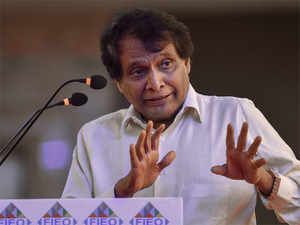
“The crisis in the Appellate Body threatens to bring back power play to the multilateral trading system,” commerce and industry minister Suresh Prabhu said in his address at the WTO (World Trade Organisation) ministerial meeting of 23 developing and least developed countries (LDCs) here.
“Questions being raised on S&DT are controversial and extremely divisive,” he said, adding there is reluctance on the part of some members to consider S&DT in the negotiations on fisheries subsidies.
He also said a declaration, to be issued on Tuesday after the conclusion of the meeting, will seek to reaffirm the importance of a rules based multilateral trading system and give suggestions for WTO reforms.
Prabhu called upon the participating member countries to come to a common understanding on the declaration. “These are difficult times at the WTO, particularly for developing members,” he said.
The S&DT are flexibilities provided to developing countries in the WTO. Under this, they enjoy benefits such as higher domestic support for the farm sector and longer time periods for implementing agreements and binding commitments.
Currently, any WTO member can designate itself as a developing country and avail of these benefits.











 Get Unlimited Access to The Economic Times
Get Unlimited Access to The Economic Times
